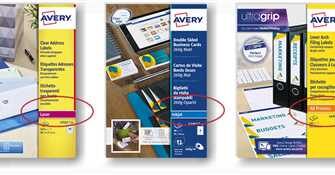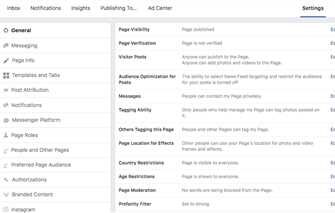
When it comes to investing, one of the most important decisions an individual can make is how to build an equity portfolio. Equity investments offer the potential for high returns and can be a valuable tool for building long-term wealth. However, investing in equities can also be complex and challenging, particularly for those who are new to the market.
Here, we will provide some guidance on how to build an equity portfolio that aligns with your goals and risk tolerance. Please note that this information is for educational purposes only and should not be considered financial advice. Before making any investment decisions, it is always advisable to consult with a professional financial adviser.
First and foremost, it is important to have a clear understanding of your investment goals. Are you looking to generate income from your investments, or are you focused on long-term capital growth? This will dictate the types of equities you should consider and the strategies you should employ. For example, if you are seeking income, you may want to focus on high-dividend stocks. On the other hand, if you are focused on growth, you may be interested in investing in companies with a strong potential for future earnings growth.
Once you have determined your investment goals, the next step is to consider your risk tolerance. Equity investments are inherently more volatile than other asset classes, such as bonds or cash. While they offer the potential for higher returns, they also come with a higher level of risk. It is important to be honest with yourself about how much risk you are comfortable with, as this will inform your investment choices.
When it comes to building an equity portfolio, diversification is key. Diversification involves spreading your investments across different companies, sectors, and geographies. This can help to lower your overall risk by reducing the impact of any single company or sector on your portfolio. There are many ways to achieve diversification – you can invest in individual stocks, exchange-traded funds (ETFs), or mutual funds. Each option has its own advantages and disadvantages, so it is important to do your own research and consult with a financial professional before making any investment decisions.
How to build an impactful public equity portfolio – a practical guide
Building a public equity portfolio that can beat the market and deal with risks requires careful consideration and planning. In this practical guide, we will provide you with the necessary information to help you build an impactful equity portfolio that aligns with your goals and lowers your risk exposure.
First and foremost, it’s essential to understand that investing in stocks comes with risks. To build a successful equity portfolio, one must be prepared to navigate through the ups and downs of the market. However, by following the right strategies and utilizing the available tools, you can increase your chances of achieving your financial objectives.
One of the first steps in building an impactful equity portfolio is to identify your goals. Are you investing for retirement or your kids’ education? Are you looking for long-term growth or regular income? Having clear objectives will help you make better investment decisions and stay focused on your long-term plan.
Once you have defined your goals, it’s time to gather the necessary information about the stocks you wish to invest in. Conduct thorough research and analysis to understand the fundamentals of the companies and their potential for growth. This will help you make informed decisions and build a portfolio that is aligned with your investment thesis.
When building your portfolio, it’s crucial to diversify your holdings. By investing in a variety of stocks across different sectors and markets, you can spread your risk and avoid individual stock-specific volatility. Diversification can be done by investing directly in individual stocks, or by investing in low-cost index funds or exchange-traded funds (ETFs).
Furthermore, it’s important to stay informed about the market trends and the overall economic outlook. Keep abreast of the latest news and developments that might impact your investments. Regularly review your portfolio and rebalance it if necessary to keep it aligned with your investment strategy.
While building an impactful equity portfolio requires time and effort, there are resources available to help you get started. Various financial websites, market analysis tools, and investment advisers can provide valuable insights and guidance. Additionally, you may consider enrolling in a certification program or attending investment-focused lectures to enhance your knowledge and decision-making skills.
Lastly, it’s essential to keep the long-term perspective in mind. Investing in public equities should be viewed as a marathon rather than a sprint. Stay patient, ignore short-term market fluctuations, and focus on the overall growth potential of your portfolio.
In conclusion, building an impactful public equity portfolio is a complex task that requires careful planning and consideration. By following the practical steps outlined above and staying informed about the markets, you can increase your chances of achieving your financial goals. Remember to consult with a qualified financial planner or adviser to ensure that your investment decisions align with your risk tolerance and overall financial objectives.
How to build a direct equity portfolio – Part 2

Welcome back to the practical guide on building a direct equity portfolio. In Part 1, we discussed the importance of understanding terms and conditions, as well as how to get started with investing in direct equity. In this part, we will dive deeper into the decision-making process and explore some key considerations when building your portfolio.
When investing in direct equity, it’s essential to research and analyze the companies you are interested in. Freefincal and Morningstar are great sources for company information, and they can help you make informed decisions about which stocks to invest in.
One of the first things to consider is the company’s financial stability. Look at its past performance, revenue growth, and debt levels. Also, pay attention to the government’s policies and regulations, as they can have a significant impact on certain sectors in India.
Risk is another important factor to consider. Investing in individual stocks carries its own risks, especially if you are young and have a longer time horizon. Diversifying your portfolio with different stocks from various sectors can help mitigate these risks and align your investments with your future goals.
Please note that the information provided here is for educational purposes only and does not constitute financial advice. Always do your own research and consult with a certified financial advisor before making any investment decisions.
When it comes to investing in direct equity, it’s crucial to have a clear investment objective. Are you looking for long-term growth, regular income, or a mix of both? This will help you tailor your portfolio to meet your specific needs and take into account your risk tolerance.
Another essential aspect to consider is your timeline. Direct equity investing is typically a long-term commitment, and it’s essential to have a realistic expectation of how long you are willing to hold onto your investments.
Even though the stock market can be volatile, it’s essential to stay focused on your long-term goals and not get swayed by short-term market movements. Stick to your investment plan and make adjustments only when necessary.
Overall, building a direct equity portfolio is a gradual process that requires continuous monitoring and periodic rebalancing. Keep learning about the markets, stay updated with company news, and be prepared to rotate your holdings if needed.
Remember, the author of this article is not a financial advisor, and the information provided herein is based on their personal experience and opinion. Always do your due diligence and seek professional advice before making any investment decisions.
Investing in direct equity can be a rewarding journey. It gives individuals the opportunity to directly participate in the growth of companies and take advantage of market opportunities. With proper research, risk management, and a goal-based approach, you can build a successful direct equity portfolio that aligns with your financial objectives.
About The Author

The author of this article, Mr. X, is a seasoned investor and financial advisor with over 10 years of experience in the field. He has a passion for equity portfolio building and has written extensively on the topic. With a strong background in investment strategies, he helps investors make informed decisions when it comes to building and managing their equity portfolio.
As a certified financial planner, Mr. X is well-versed in the different investment options available in the market and has a good understanding of the risks and rewards associated with each. He believes that investing in equity funds is a great way for investors to grow their wealth over the long term.
Mr. X is also an avid researcher and constantly keeps up-to-date with the latest market trends and data. He strongly believes that staying informed is key to making sound investment decisions. He aims to provide readers with practical and simple strategies to help them achieve their financial goals.
In addition to his work as an author, Mr. X is also known for his informative lectures and exclusive YouTube videos where he shares his knowledge and insights on equity portfolio building. He has a large following of investors who value his expertise and advice.
If you have any questions or would like to contact Mr. X for personalized advice, you can reach out to him via his website or through his social media channels.
Disclaimer: The information provided herein is for informational purposes only and should not be considered as investment advice or a recommendation to buy or sell any particular security. The author is not affiliated with any company or government agency. Please consult with a qualified financial advisor before making any investment decisions.
Contact us
If you have any questions or need further information about building an equity portfolio, feel free to contact us. We are here to help you understand the risks and make informed decisions about your investments.
Whether you are a young investor just starting out or an experienced investor looking to increase your portfolio, we can provide advice and guidance tailored to your individual needs. Our team of experts can guide you towards the right strategies to build and rotate your equity portfolio, taking into account factors like risk tolerance, market conditions, and long-term goals.
Please keep in mind that investing in equity carries a high level of risk. The value of your investments may fluctuate, and you may not get back the original amount invested. It’s important to stay informed about market trends, inflation rates, and company data, among other factors, to make sound investment decisions.
Join us on YouTube for practical tips, expert advice, and information about building and managing your equity portfolio. We regularly publish videos that cover a wide range of topics, including goal-based investing, portfolio diversification, and strategies for investing in government stocks. Subscribe to our channel to stay updated on the latest market trends and investment opportunities.
If you would like to schedule a one-time consultation or attend a lecture about equity portfolio building, please get in touch with us. We can provide you with a comprehensive guide and help you understand the terms and concepts involved in investing.
At Moderas, we believe in empowering individuals to take control of their financial future. We are committed to providing unbiased advice and guidance, and we strive to ensure that our clients are well-informed and confident in their investment decisions.
Contact us today and let us help you on your journey towards building a successful equity portfolio!
Sources
- India has a simple and practical approach when it comes to investing in equity. Even while there are many investment options available, investing in equity portfolios can be a good way to increase wealth in the long run.
- If you are interested in learning more about these particular investments, a certified financial planner can provide valuable advice and help you set goal-based investment decisions.
- Without proper guidance and knowledge, investments in equity can be risky. Therefore, it is important to seek the advice of a professional who has the necessary expertise and certification.
- Morningstar is an impactful resource that provides data and analysis on various investment options, including equity. They offer informative articles and research reports to help you make informed decisions about your portfolio.
- Freefincal is another excellent source for building equity portfolios. They provide exclusive articles and posts about various aspects of equity investments and retirement planning.
- Government websites and publications can also be valuable sources of information, offering insights into the overall market and specific companies. They may provide breakouts, market data, and information about the impact of government policies on the equity market.
- When building an equity portfolio, it is important to keep in mind the impact of inflation on your investments. Understanding how inflation can erode the value of your corpus is crucial for long-term success.
In conclusion, there are various sources available to help you build your equity portfolio. Whether it’s advice from a certified financial planner, articles from reputable websites, or government publications, be sure to gather as much information as possible to make well-informed investment decisions.









